Anna Adamska-Gallant: "Over the next two years we hope to scale up the achievements of the Model Courts Initiative to the entire judicial system of Ukraine"
On 11 September 2020, participants of the meeting of the Model Courts Initiative Project Council of the EU Project Pravo-Justice discussed the achievements and plans, the importance of cooperation and model solution implementation.
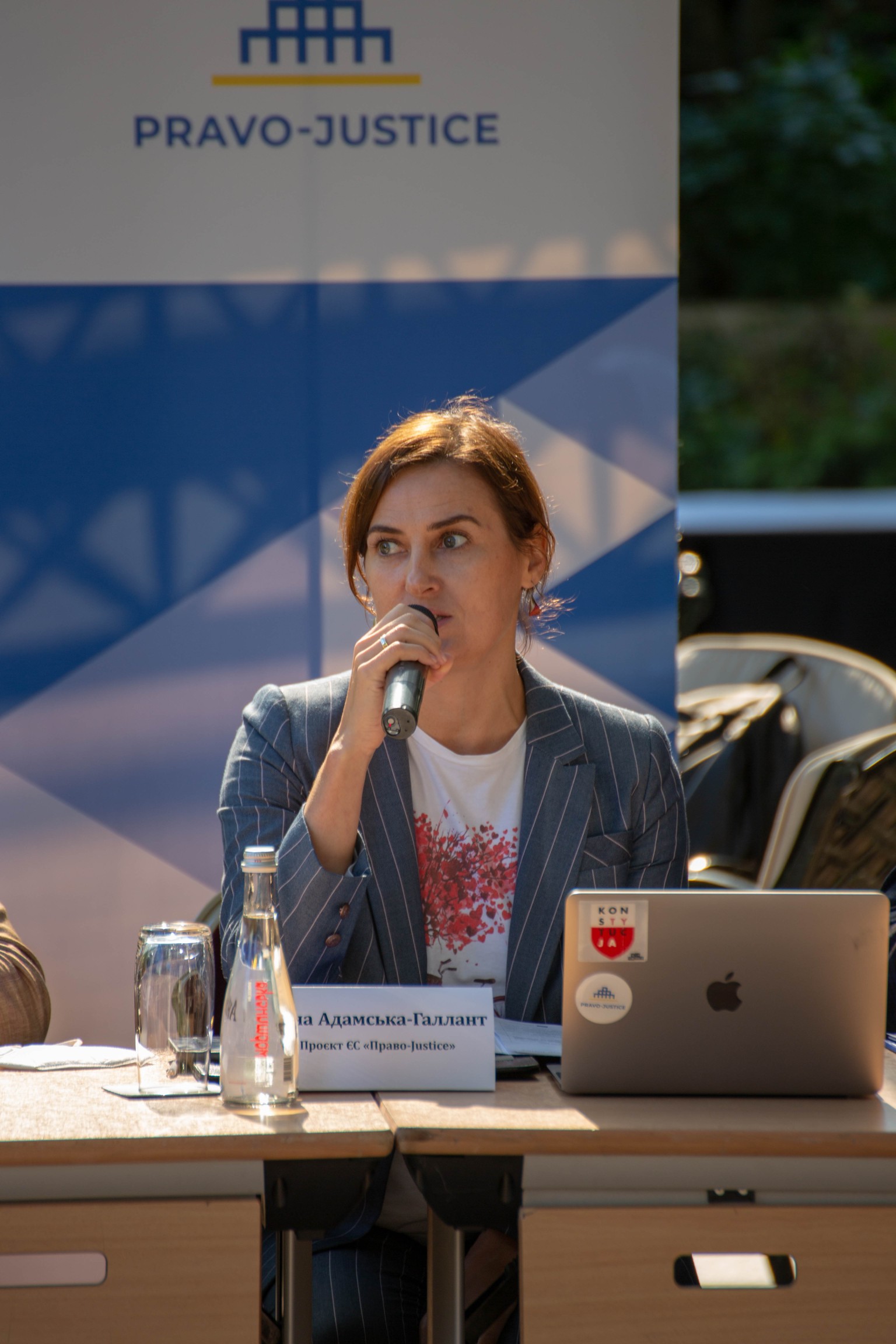
"Over the period of activity of the Model Courts Initiative, we managed to unite all the stakeholders into a single platform for model solutions. It is important that during the period of restrictions caused by the Covid-19 pandemic, we were able to continue our work and even intensify it in some areas. For example, with the webinars we were able to reach out to representatives of the majority of courts in Ukraine. In the feedback forms, the participants were thanking us for the opportunity to learn from our experience and consult with the highly qualified international experts. The Model Courts Initiative will be extended for another two years, until 2022, and we believe in that time we will be able to increase the capacity of the judicial system and put into practice the model solutions that will increase efficiency and comfort of work in courts," said Anna Adamska-Gallant, the international key expert on judiciary of the EU Project Pravo-Justice.
During the event, the experts of the Initiative presented their achievements and project plans. The representatives of the judicial branch of power expressed their readiness to implement model solutions.
The Model Courts Initiative pays special attention to security. The national key expert of the project Polina Li spoke about the plans to provide model courts with security equipment worth almost 303 thousand euros. The experts are expecting that installation of such equipment will ensure safe working conditions for the judges, court employees and visitors, will contribute to work efficiency of the judicial security service and will contribute to the dissemination of good security environment among other judicial bodies of Ukraine.
International experts Cornelis Verhaeren, Silviu Sandru and a national expert Oleg Maksymchuk spoke about the steps taken to develop security solutions for model courts. They also presented an interactive handbook Personal Security of Judges and Court Staff. The international experts of the Initiative Dariusz Sielecki and Rafal Dunal also presented their work on integrated court reception, implementation of duress alarm and electronic docket.
Irina Urumova, an international expert of the project, shared her impressions about the training for trainers who will be teaching how to work with vulnerable categories of court users. She also spoke about further plans to work on strengthening multi-agency and interregional cooperation.
The event was attended by the Chairman of the High Council of Justice Andrii Ovsiienko, the Chairman of the Council of Judges of Ukraine Bohdan Monich, the Head of the State Judicial Administration of Ukraine, Zenovii Kholodniuk, the President of the National School of Judges of Ukraine Mykola Onishchuk, the Head of the Judicial Security Service, Major-General Valerii Bondar, international and national experts of EU-funded project Pravo-Justice and representatives of the judiciary of Ukraine. Taras Tarasenko, the Chairman of the Sub-Committee on Human Rights, has joined remotely and delivered a welcoming speech.
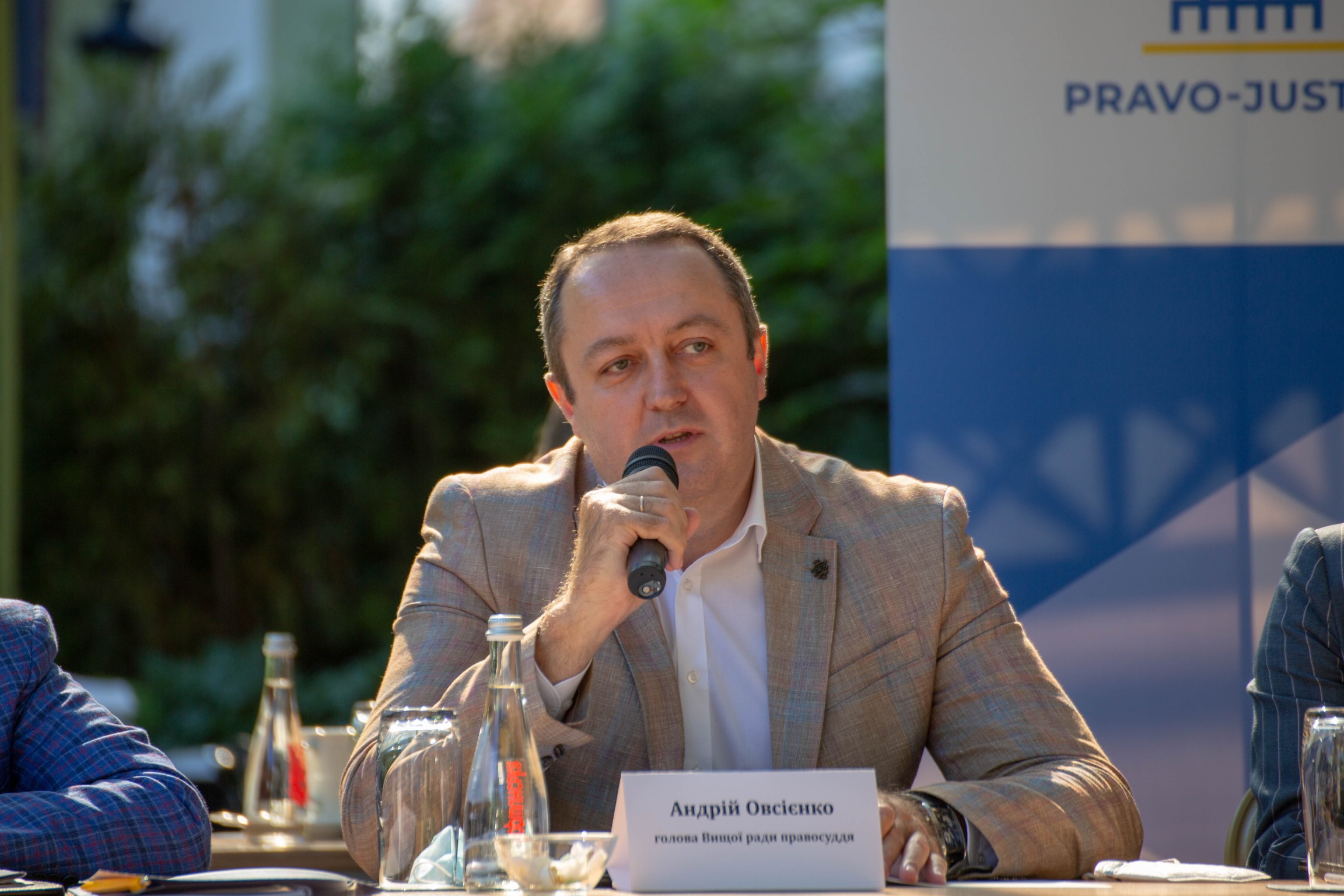
Andrii Ovsiienko, the Chairman of the High Council of Justice: "We see significant progress in the project implementation. We expect the project to go further and translate the model solutions into practice. I hope we will be able to put these ideas into practice under the current circumstances and create a model court that will conform to the best European practices. I believe that we will make the judicial system as close to the model courts as possible."
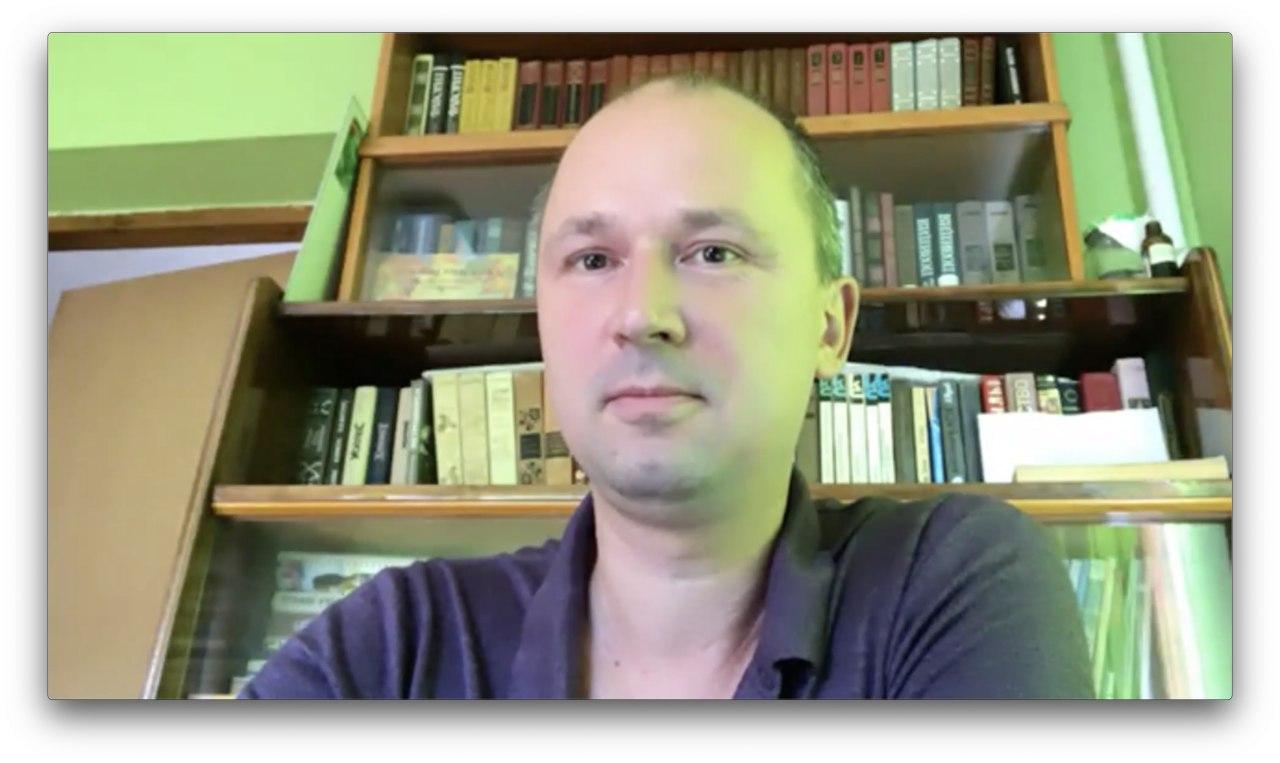
Taras Tarasenko, the Chairman of the Verkhovna Rada Sub-Committee on Human Rights, Deoccupation and Reintegration of Temporarily Occupied Territories in Donetsk, Luhansk Regions and Autonomous Republic of Crimea, National Minorities and Interethnic Relations: "The recommendations that are set out in the handbook on model courts should be perpetuated at the level of bylaws and put into practice. And the standards related to the court registry should be taken into account when developing a Unified Judicial Information and Telecommunication System. Unfortunately, most courts do not apply these standards in real-case scenario. I hope that the State Judicial Administration will see these standards as a priority, especially as regards the security aspect, and will implement them in all courts of the country. It is also worth paying attention to the crisis in the judicial system due to the lack of judges and court staff. The idea of a model court is to provide high-quality judicial services."
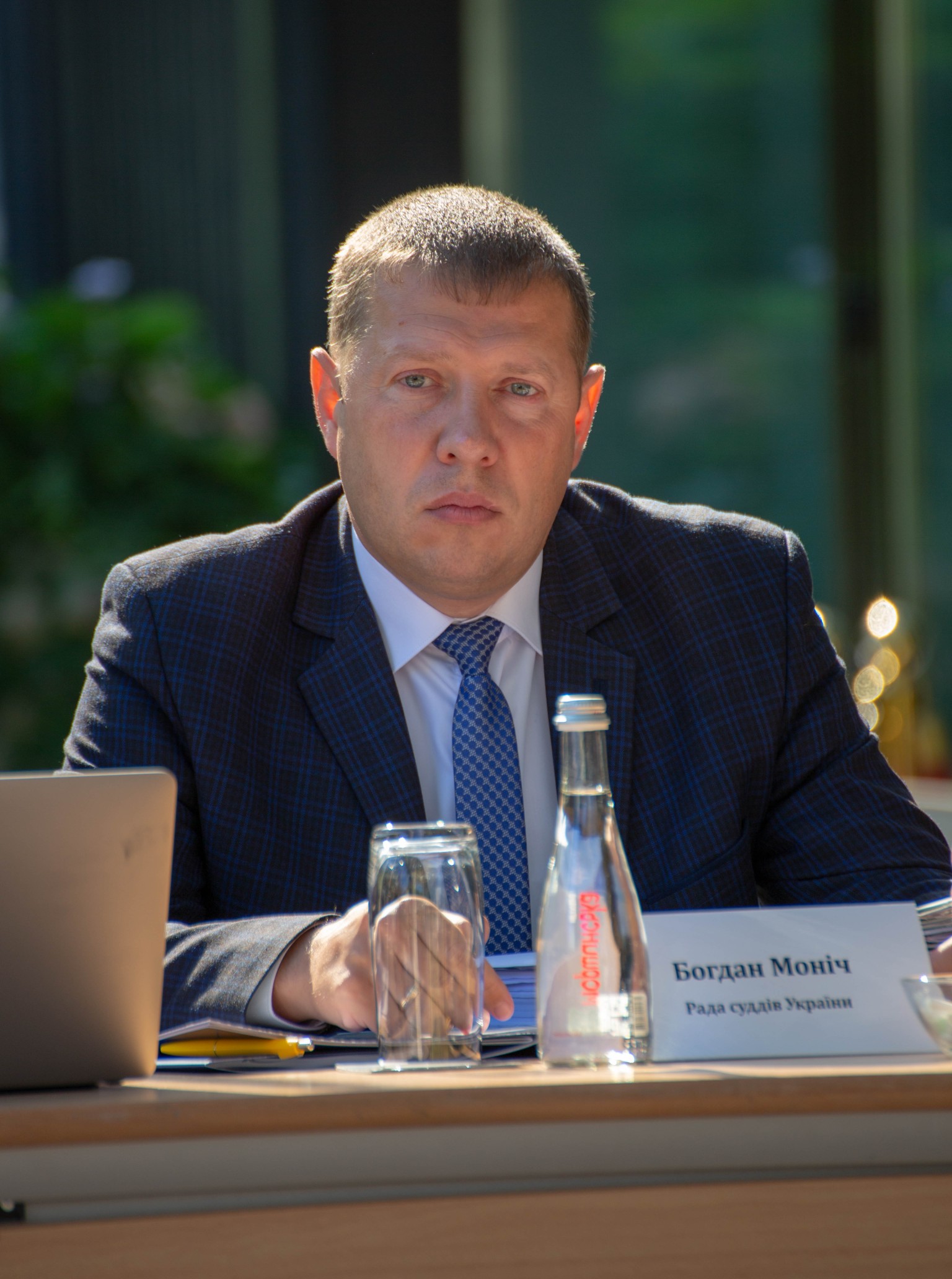
Bohdan Monich, the Chairman of the Council of Judges of Ukraine: "The Council of Judges has long been engaged in this initiative and it is authorized to carry out the measures for proper organization of the court work. It is the Council of Judges that at one of the following meetings will decide on the implementation of the standards of the initiative in 2021-2022. We are motivated to have model solutions disseminated among all courts in the country. After all, we want people who go to the court to be able to get proper level of services and attitude, and to achieve this we need to implement the model solutions".
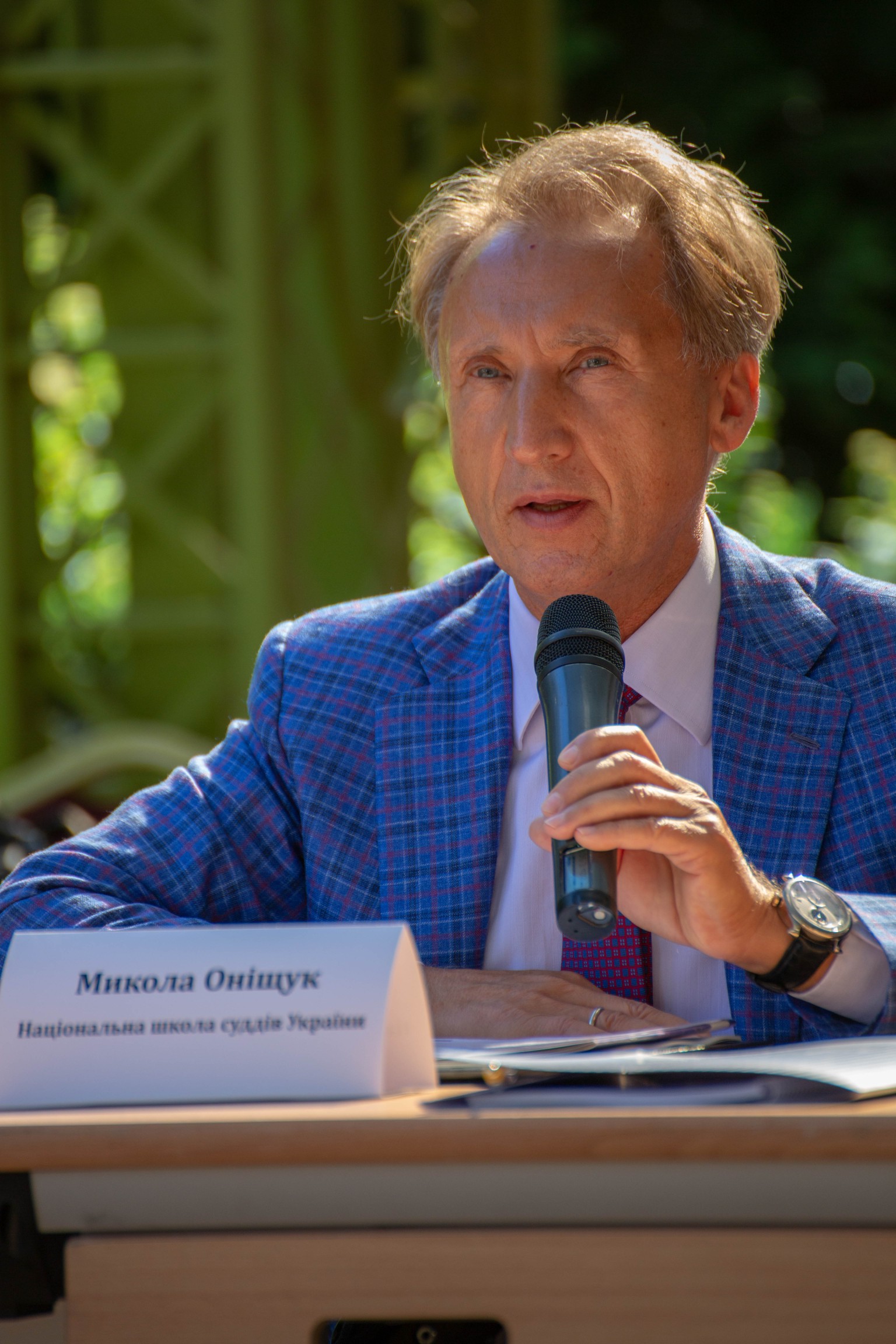
Mykola Onishchuk, the President of the National School of Judges of Ukraine: "Security remains a problem for the justice system for various reasons, so availability of a handbook on security issues developed by the experts of the initiative is very timely and important. Another part of the project is a training for trainers who will be teaching how to work with vulnerable categories of court visitors. And we should actively promote this component of the project together."
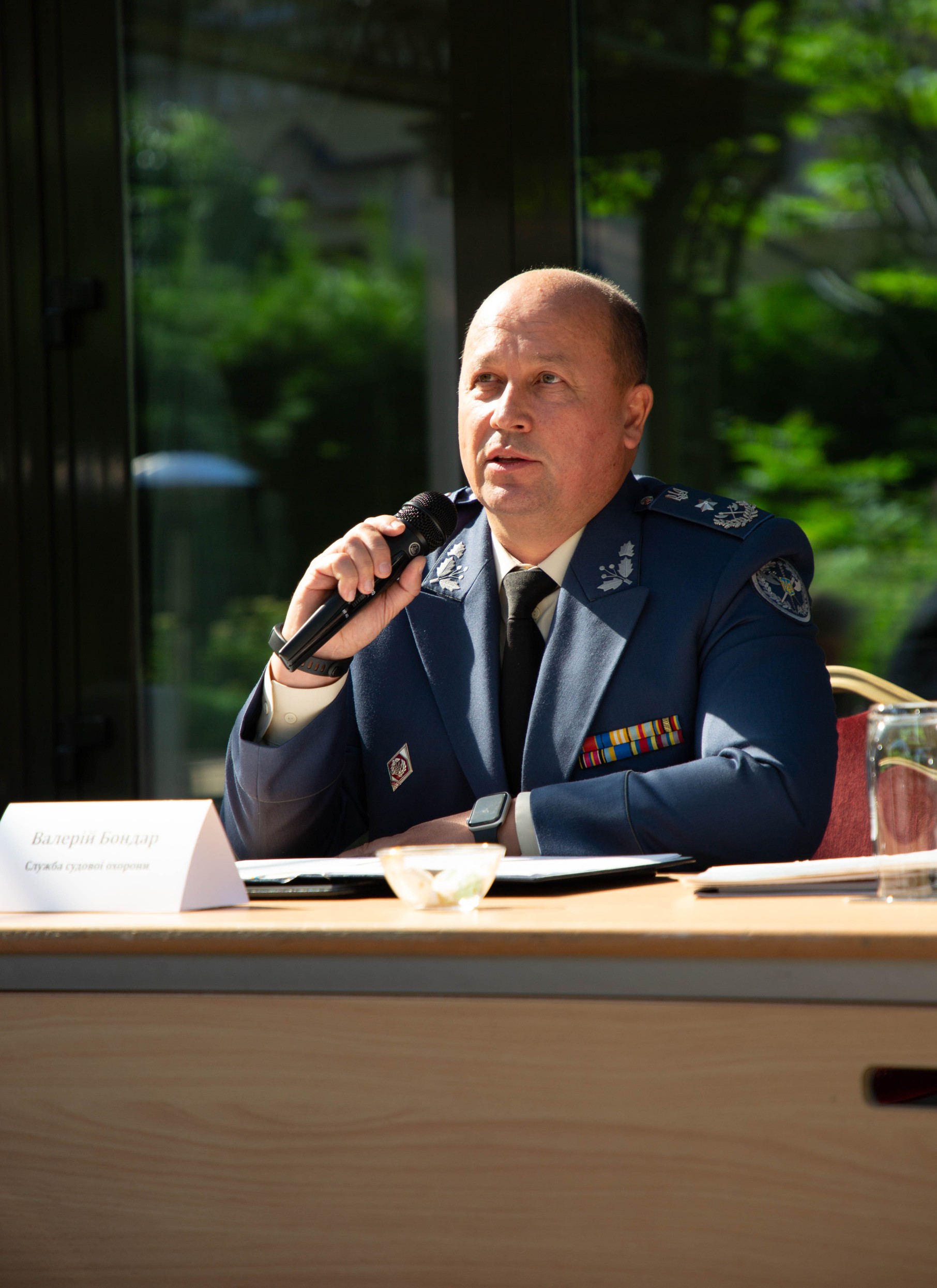
Valerii Bondar, the Head of the Judicial Security Service:
"When security issues of the judicial branch of power are discussed, I cannot keep aloof. The Judicial Security Service is the youngest state body. Still we do everything necessary to ensure safe and comfortable work of the judicial branch of power. We have taken under our protection three model courts and another three courts will be taken in October. I am grateful to the initiative for the cooperation and I would like to note that 7 of our joint discussions have significantly improved the security aspects of our activities. 435 of my employees have joined the measures of the initiative. Now the initiative intends to provide the courts with security equipment, conduct first aid trainings. We are very grateful for that! You are our colleagues in terms of ensuring security of the judicial system."